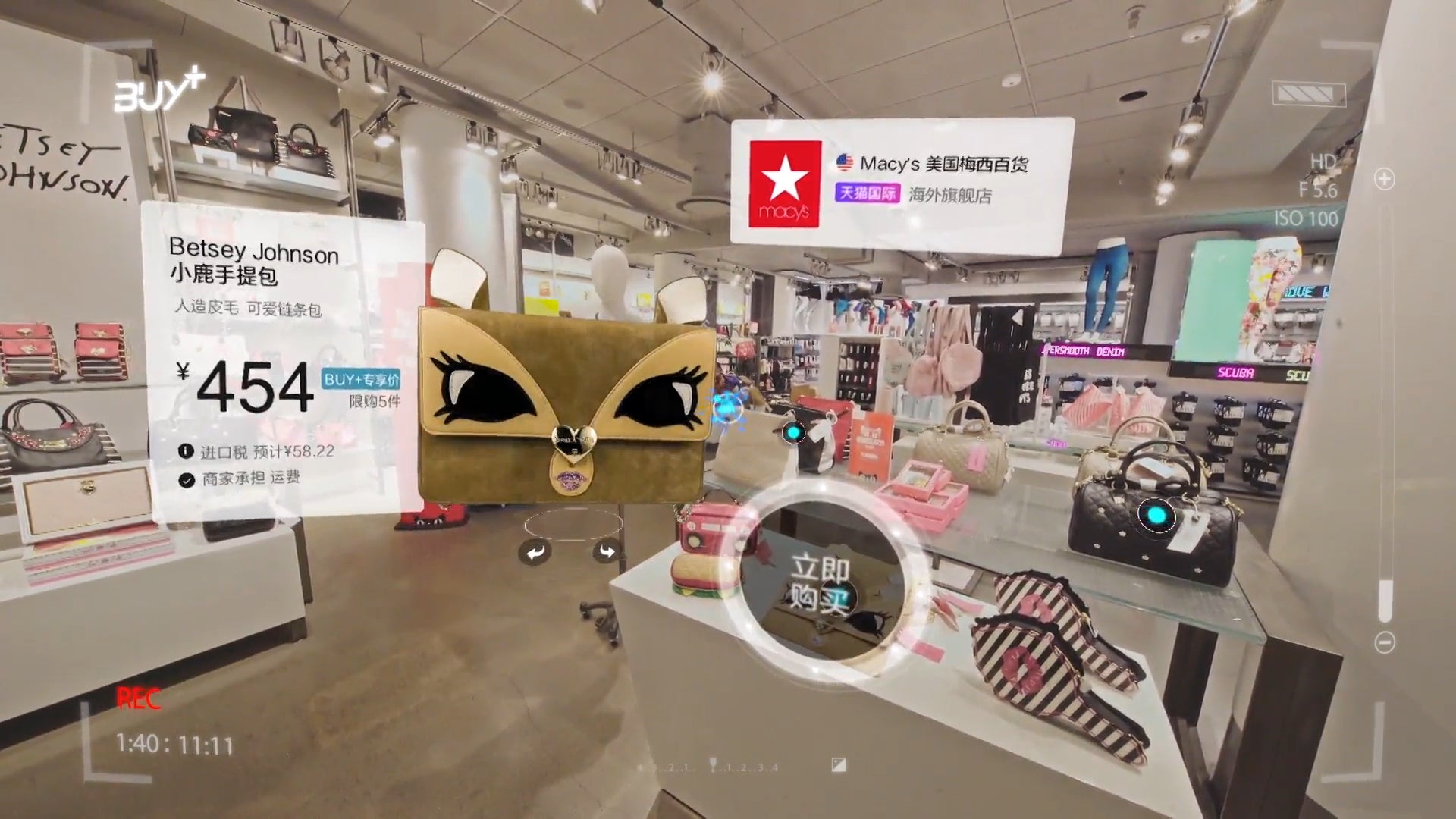Virtual reality lets Chinese customers shop Macy’s New York store on the world’s biggest shopping day
The volume of merchandise sold on Singles Day—the predominately Chinese event that occurs on 11.11 and is basically the invention of ecommerce behemoth Alibaba—is jawdropping. This year, in just the first two hours of the world’s biggest shopping day, sales on Alibaba platforms alone topped $7 billion. In the hours since, they have blown past last year’s total of about $14.3 billion, and at the end of the day, clocked in at $17.8 billion.


The volume of merchandise sold on Singles Day—the predominately Chinese event that occurs on 11.11 and is basically the invention of ecommerce behemoth Alibaba—is jawdropping. This year, in just the first two hours of the world’s biggest shopping day, sales on Alibaba platforms alone topped $7 billion. In the hours since, they have blown past last year’s total of about $14.3 billion, and at the end of the day, clocked in at $17.8 billion.
For comparison’s sake, combined Black Friday and Cyber Monday sales in the US in 2015 were about $13.5 billion—and keep in mind that’s across all retailers. The Singles Day figures above are just within Alibaba’s ecommerce ecosystem, which works differently than a site such as Amazon. These sales to consumers are happening on Alibaba’s site Tmall, where brands can set up their own storefront, and Taobao, a peer-to-peer site similar to eBay. Alibaba also has its main platform, which deals in wholesale.
Anxious to get a share of the sales, US fashion retailers and brands, including Macy’s, Michael Kors, Calvin Klein, and Coach, are jumping into Singles Day. But a quick cash grab isn’t the only objective. Singles Day offers a way for brands to establish or build a long-term foothold in China, where the growing middle class promises years of sales ahead, and it has also become a way to play with new commerce concepts, such as virtual reality.
This year, Macy’s took part in its first Singles Day by working with Alibaba on a virtual experience. In late October, Alibaba started selling 150,000 cardboard VR headsets, similar to Google Cardboard, for 1 yuan (about $0.15) on Taobao. From Nov. 1-11, customers could use them with Taobao’s app to virtually stroll through and shop Macy’s famed New York flagship. On Singles Day itself, the discounts that help make the shopping bonanza so popular were also available in the virtual-reality shopping trip. You can watch a video showing what the experience was like below.
Other international brands, including Target, CostCo, and Tokyo Otaku Mode, are also doing virtual shopping experiences with Alibaba. Mike Evans, Alibaba’s president and the person in charge of the company’s international expansion, says the point goes beyond sales. He calls Singles Day “a test bed for the future of commerce,” and believes using technology to create these experiences establishes a stronger relationship with shoppers.
“This gives consumers a chance to more deeply engage with the product, to understand it better, and to do it in a ‘famous’ store environment,” he explains. “It is a new tool to move the relationship with their consumers beyond a highly transactional one where speed and efficiency count most, and allow the brand to create stronger bond.”
He adds that this is just a first step for Alibaba, which has pioneered innovations including a virtual-reality payment system that works by nodding. The company is experimenting with other ways to create experiences through technology, such as a virtual store designed to be its own experience rather than replicating a physical store.
Michael Kors, which has been building its business in China and has high hopes for its future there, took part in Singles Day this year with a game on all-encompassing app WeChat. Customers in mainland China, Hong Kong, and Macau scan a QR code with WeChat to play and unlock discount codes they can use on the Michael Kors’ Chinese site or at its stores. It has a casino theme, in keeping with the brand’s global holiday campaign, set in Las Vegas.

“We decided to engage our WeChat audience with something that was fun and unexpected, and that went above and beyond the normal promotional route while still delivering a reward at the end,” says Lisa Pomerantz, the company’s SVP of global communications and marketing.
Expect next Singles Day to be even bigger, with even more tech-enabled shopping opportunities.
This story has been updated to include Alibaba’s reported total sales of $17.8 billion for this year’s Singles Day.